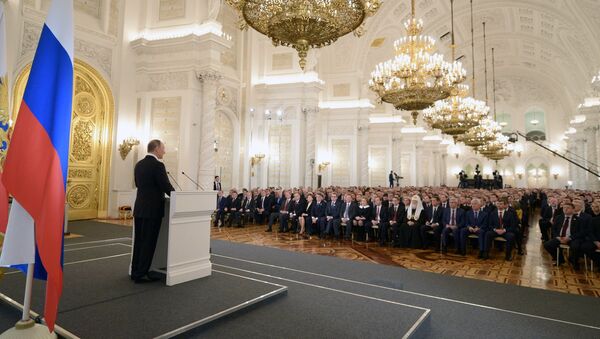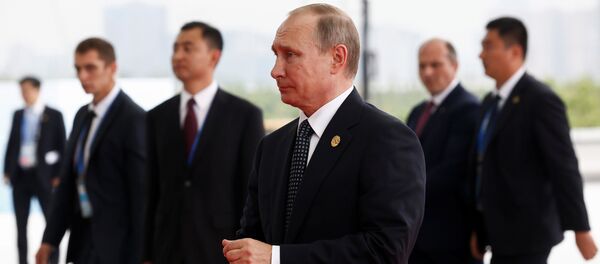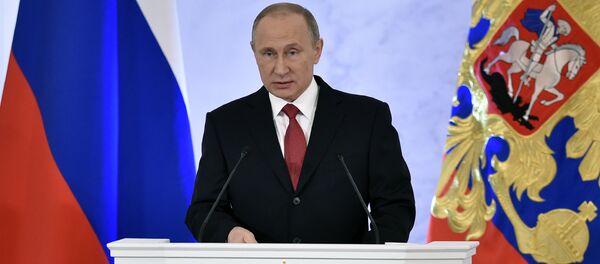Putin said that attempts to break parity in strategic nuclear armaments were dangerous and fraught with potential global "catastrophe."
"The United States has the largest stockpile of nuclear weapons, moreover, it is continually expanding its nuclear arsenal. All of us hope that the United States will not strengthen its nuclear forces. This idea was outline in the [Putin’s] address," Wang Junsheng, research fellow in the National Institute of International Strategy at the Chinese Academy of Social Sciences, said.
At the same time, Putin also spoke about countries that are trying to develop their nuclear weapons, for example, Iran and North Korea.
"Obviously, attempts of these states to get nuclear weapons can lead to the domino effect and have uncontrolled and unpredictable consequences for maintaining strategic parity as a factor of peace," the expert said.
"Global strategic nuclear parity is a very fragile equilibrium that may be violated and destroyed in a short period of time. At the best that can lead to the armament race, at the worst – to regional conflicts and powerful turbulence in the international community," he said, adding that China and the United States also must ensure the strategic parity.
In the address, Putin also expressed his concern about growing protectionism across the world.
"The tendency of creating trade barriers and using trade protectionism is aggravating across the globe. The problem is especially significant in the policy of developed countries. Today both Europe and the United States are conducting the policy of trade protectionism, making obstacles for free trade," Chen Fengying, Director of the World Economy Institute of China's Institute of Contemporary International Relations, said.
She added that the global economy as well as trade, investments and exchange rates were at the lowest point now. However, from her point of view, the phase of recovery has already started.



